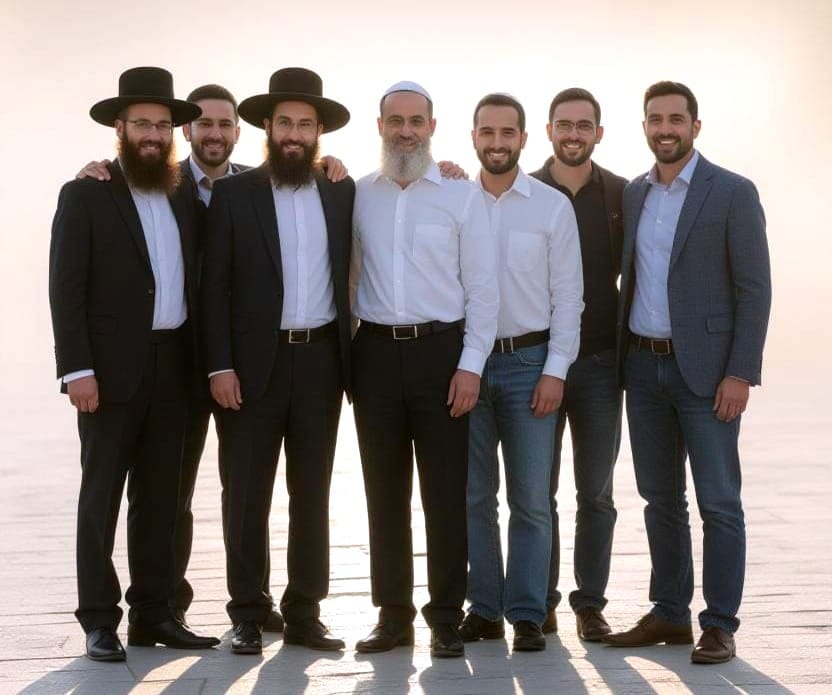Why is unity so important in Torah Judaism?

1. Unity Invites the Shechinah
The Gemara teaches:
“כל מחלוקת שהיא לשם שמים — סופה להתקיים; ושאינה לשם שמים — אין סופה להתקיים.” “Any dispute that is for the sake of Heaven will endure, but one not for the sake of Heaven will not.” (Avos 5:17)¹
But the very fact that we are warned about machlokes shows how destructive it is. Chazal say that the Shechinah cannot dwell where there is fighting and division:
“ולא היה איש במועד כאשר בא משה לדבר אתו… מכאן שאין השכינה שורה מתוך מחלוקת.” “No man was present when Moshe came to speak with Hashem… from here we learn the Shechinah does not rest amidst dispute.” (Rashi, Bamidbar 7:89)²
When Klal Yisrael is united—even if we are not perfect—Hashem’s presence rests among us.
2. Unity Is What Redeemed Us—and What Will Again
Chazal famously say that the Second Beis HaMikdash was destroyed due to sinas chinam, baseless hatred (Yoma 9b)³. But what rebuilt us after the Holocaust? What held us together during exile?
Rav Chaim Shmuelevitz zt”l pointed out that the Jewish People left Mitzrayim because they were “כאיש אחד בלב אחד” — like one man with one heart⁴.
It was unity that brought the geulah — and it is unity that will bring it again.
3. The Torah Was Given Only in Unity
Before Matan Torah, the pasuk says:
“ויחן שם ישראל נגד ההר” “And [he] camped there, opposite the mountain.” (Shemos 19:2)
Rashi notes the word ויחן is singular — to teach us that:
“כאיש אחד בלב אחד” “They were like one man with one heart.” (Rashi, ibid)⁵
The Torah could not be given when the Jews were divided. Only true unity—not superficial, but spiritual—made us ready for Hashem’s greatest gift.
4. Ahavas Yisrael Is a Torah Obligation
The Rambam writes:
"מצות עשה מן התורה לאהוב כל אחד ואחד מישראל כגופו" "It is a positive mitzvah from the Torah to love each and every Jew as oneself.” (Hilchos Dei’os 6:3)⁶
It’s not a nice suggestion. It’s a halachah. Rav Yisroel Salanter zt”l even said that caring for another Jew’s physical needs is part of one’s own spiritual growth.
To build a Torah society, we need more than yeshivos and mikvaos — we need chesed, sensitivity, achdus, and mutual respect.
5. Unity Is a Force Against Our Enemies
In Medrash Tanchuma, Hashem says:
“כשאתם עשויים אגודה אחת, אין אומות העולם יכולין לשלוט בכם.” “When you are united as one bundle, the nations of the world cannot rule over you.” (Tanchuma, Nitzavim 1)⁷
Rav Eliezer Silver zt”l saw this during WWII. He famously united diverse Jewish factions to save Yidden—not by debating ideology, but by finding common ground in pikuach nefesh and Yiddishkeit.
In times of danger, the greatest shield is not missiles—but achdus.
6. Disunity Weakens Us in Every Way
The Netziv, in his commentary to Sefer Bereishis, writes that during Bayis Sheini, people who were outwardly religious would attack others who did not follow their exact hashkafah—and that sin destroyed us.⁸
We must learn: there is no greater enemy to Torah than machlokes.
7. Chareidi Unity Is About Torah—Not Conformity
Unity doesn’t mean we all look the same. It doesn’t mean ignoring real differences.
It means:
- Respecting other Torah-observant Jews
- Avoiding cynical generalizations
- Assuming the best of others unless proven otherwise
- Caring for the pain of every Jew, even those we disagree with
As Rav Aharon Leib Shteinman zt”l said:
“True achdus means: You care for others, even when they are not like you.”⁹
Conclusion: Unity Is the Vessel for Geulah
The Chofetz Chaim wrote that Moshiach cannot come while there is sinas chinam. Why? Because the Shechinah cannot dwell in a broken body. Klal Yisrael is one spiritual organism. When we mock, shame, or exclude parts of that body, we injure ourselves.
So why is unity so important in Torah Judaism?
Because Hashem is One.
His Torah is One.
And only a nation that is One can truly receive His light.
Footnotes & Sources:
- Pirkei Avos 5:17
- Rashi on Bamidbar 7:89
- Yoma 9b
- Sichos Mussar, Rav Chaim Shmuelevitz zt”l
- Rashi on Shemos 19:2
- Rambam, Hilchos Dei’os 6:3
- Tanchuma, Nitzavim 1
- HaEmek Davar, Netziv, Introduction to Bereishis
- Ayelet HaShachar, Rav Aharon Leib Shteinman zt”l
